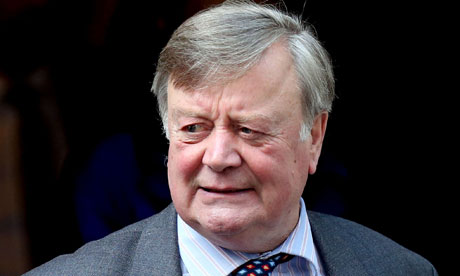Motorists may have paid thousands of pounds too much for their petrol over the last decade, after two of Britain’s biggest companies were raided on suspicion of manipulating oil prices.
MPs and energy experts tonight raised fears motorists have been “taken for a very expensive ride”, after officials searched the offices of BP and Shell for evidence of price-rigging.
The companies are suspected of distorting the oil price since 2002, meaning drivers have potentially been ripped off for more than 10 years.
Over that time, petrol prices have risen dramatically by more than 80 per cent to around 135p per litre.
European investigators, who raided the London offices of BP and Shell, said the alleged price-rigging could have had a “huge impact” on the cost of oil, including the price of fuel for consumers.
The investigation into market-fixing already has echoes of the Libor scandal, which saw the banks falsely report key interest rates used to calculate mortgages. It cost several British banks hundreds of millions of pounds in fines.
Robert Halfon, the MP for Harlow who has long campaigned for an investigation into the oil market, said high prices have been “crushing families across Britain”.
He called for UK authorities to launch an urgent inquiry and for oil companies to “come clean and show some responsibility for what is happening to the international price”.
The raids were part of an investigation across the continent by the European Commission’s competition authorities. Offices owned by Platts, a price-reporting agency, and Statoil, a Norwegian oil company, were also raided.
European officials said several companies may have colluded in manipulating the price of both oil and green “biofuels”.
This could have happened if the oil companies provided false information to Platts, the main reporting agency that collects and reports prices to the wider market.
“Any such behaviour, if established, may amount to violations of European antitrust rules that prohibit cartels and restrictive business practices and abuses of a dominant market position,” the European Commission said.
“Even small distortions of assessed prices may have a huge impact on the prices of crude oil, refined oil products and biofuels purchases and sales, potentially harming final consumers.”
It said the raids were a “preliminary step to investigate suspected anticompetitive practices” and “does not mean that the companies are guilty of anti-competitive behaviour nor does it prejudge the outcome of the investigation itself”.
The inquiry comes after The Daily Telegraph revealed growing concerns about the reliability of oil prices last year.
A study for G20 finance ministers, including George Osborne, said traders from banks oil companies and hedge funds have an “incentive” to distort the market and are likely to try to report wrong prices.
Scott O’Malia, a top official at the US Commodities Futures Commission, has also previously drawn attention to the “striking similarity” between the potential for manipulating oil and Libor. The price reporting agencies strongly deny any similarities between their methods and the way Libor was calculated.
The information published by Platts and other reporting agencies is used widely by companies as a guide for pricing their oil-related products, including petrol.
Brian Madderson, chairman of the Petrol Retailers’ Association, tonight said any manipulation of the benchmark oil price over a decade could have cost motorists “thousands of pounds each”.
He said the PRA has repeatedly warned the regulators that the oil price appears to have been manipulated.
An 8p rise in the price of petrol last winter cannot be explained by basic supply and demand, unusual geopolitical events or other factors, he said.
Like Libor – the interest rate measure that banks were found to have rigged – the market is unregulated and relies on the honesty of the firms to submit accurate data about all their trades.
Lord Oakeshott, a senior Liberal Democrat and former Treasury spokesman, urged the UK authorities to take a closer look at the oil market.
“Rigging oil prices would be as serious as rigging Libor,” he said. “The price of energy ripples right through our economy and really matters to every business and families.
“All credit to the European Commission for taking action if they have evidence of collusion-but why have we had to wait for Brussels to find out if British oil giants are ripping off British consumers?
"I will be putting down parliamentary questions asking who has UK regulatory responsibility for ensuring fair and open competition in the oil market and what action they have taken in the past 5 years to investigate and enforce it.”
The oil companies tonight confirmed their offices have been raided.
A spokesman for BP said the company is “cooperating fully with the investigation and unable to comment further at this time.”
A Shell spokesman also confirmed its companies are “currently assisting the European Commission in an enquiry into trading activities”.
“We are fully cooperating with the investigation. For legal reasons we cannot make any further comment at this stage”.
Platts, the price-reporting agency, said the European Commission has “undertaken a review at its premises in London” and confirmed it is “cooperating fully”.

 425 Comments
425 Comments

